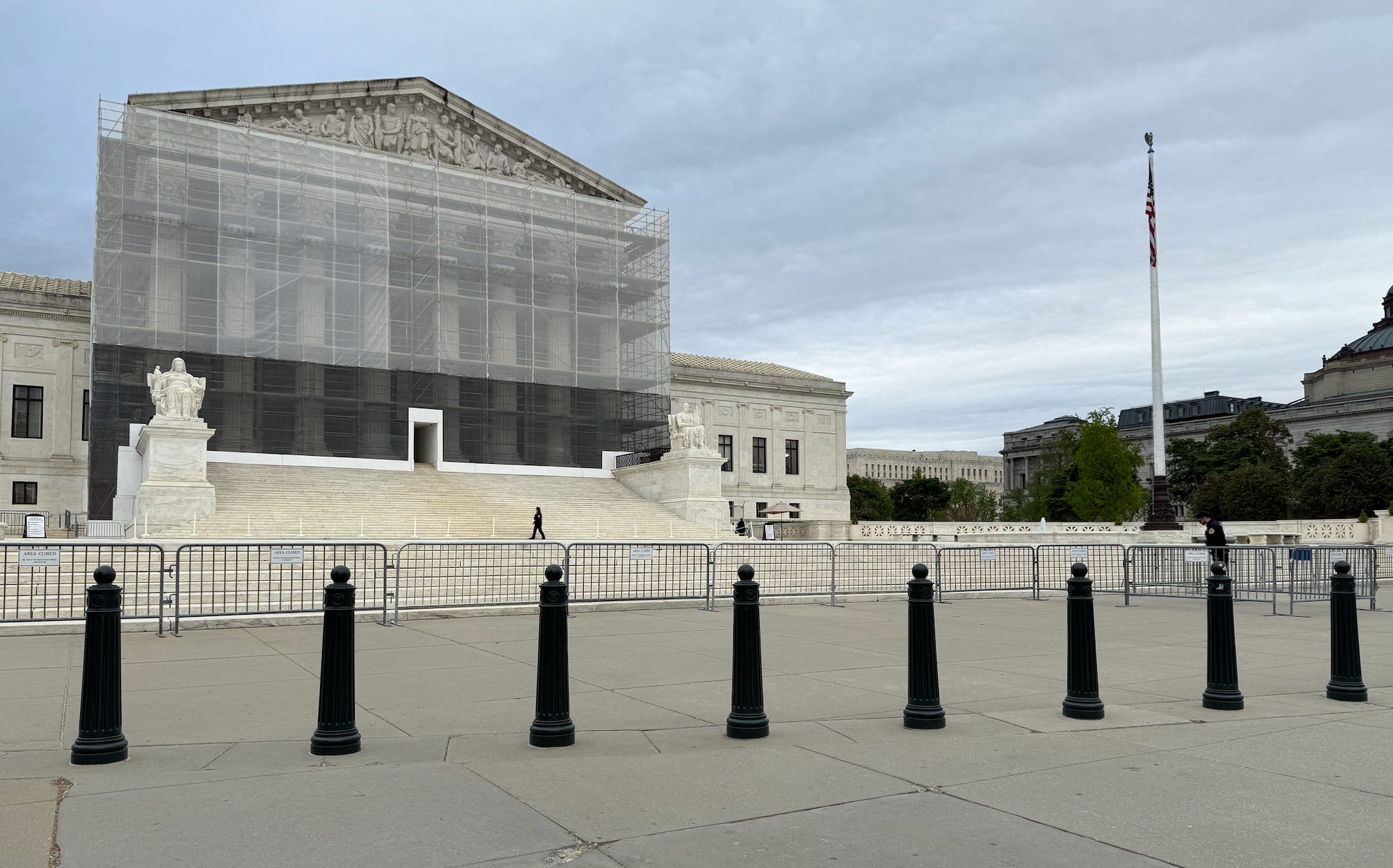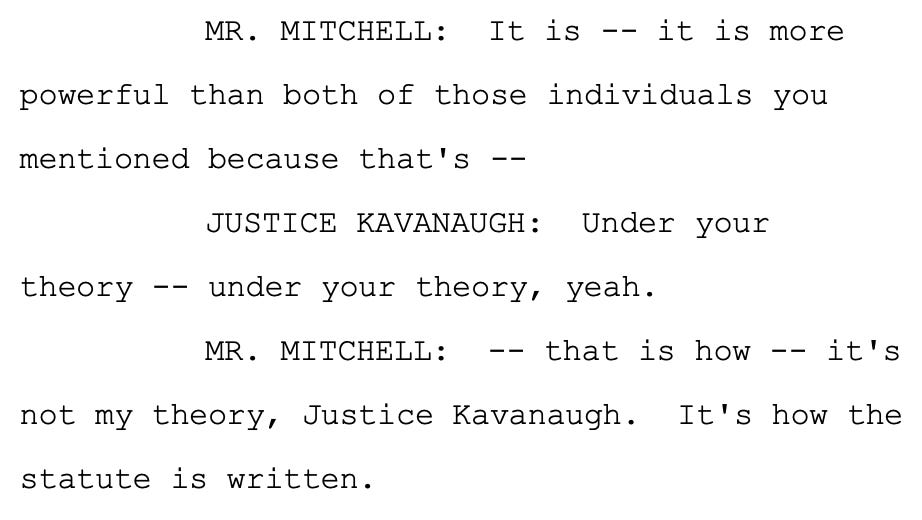SCOTUS likely to reject challenge to preventative care insurance protections
Such a decision, however, also would likely empower HHS Secretary Robert F. Kennedy Jr. to press for changes in the protections if he wants to do so.
The U.S. Supreme Court is likely to reject an argument pressed by a key conservative lawyer on Monday that would end existing preventative care insurance coverage protections put in motion by the Affordable Care Act.
At the same time, however, that outcome in the case would likely empower the secretary of the Department of Health and Human Services to press for changes in the protections if the secretary so chooses — an area of concern given HHS Secretary Robert F. Kennedy Jr.’s positions and actions in office already.
Under the ACA, among other preventative care requirements, insurance providers must include cost-free coverage for services that get certain positive recommendations from the U.S. Preventative Services Task Force. Employers who don’t want to provide insurance that covers care they oppose on religious grounds sued and argued at the Supreme Court that the task force members are unconstitutionally appointed because they weren’t nominated by the president and confirmed by the Senate — an argument accepted by the U.S. Court of Appeals for the Fifth Circuit.
That argument, that task force members are “principal” officers under the Appointments Clause, would not only toss out coverage protections for the care the employers oppose — PrEP coverage (an HIV-prevention drug regimen) and certain contraceptive coverage — but all of the recommendations of the task force, including certain cancer and mental health screenings.
Jonathan Mitchell, the former solicitor general of Texas who was behind Texas’s S.B. 8 vigilante enforcement abortion ban, is behind the litigation and argued for the employers on Monday that the task force — created during the Reagan administration — has been operating unconstitutionally since the passage of the ACA made its recommendations a part of the law’s coverage requirements.
The government, however, has responded that Mitchell and the employers, as well as the Fifth Circuit, are twisting the law to force the issue. Because the Health and Human Services secretary can remove the task force members at will and has additional authority to review their recommendations, they argue that the task force members are “inferior” officers and, thus, their appointments are constitutional. And while the Biden administration had been defending the task force, the new Trump administration continued to defend the task force when the administration changed over.
If that wasn’t already enough of a sign of the extreme nature of Mitchell’s position, Monday morning’s arguments cemented that.
Much of the case, as it reached the Supreme Court, comes down to what the law’s reference to the “independen[ce]” of the Task Force means, as well as language that its recommendations are to be free of “political pressure” — “to the extent practicable.“
Before Mitchell could even get to the podium, however, Justice Amy Coney Barrett — in discussing the case with DOJ Principal Deputy Solicitor General Hashim Mooppan — was referring to the Justice Department’s argument as the “middle-of-the-road“ position and Mitchell’s argument as the “maximalist” argument.
Once Mitchell did take the podium, Justice Elena Kagan repeatedly questioned Mitchell’s selective approach to the statutes at issue — an argument that Justice Ketanji Brown Jackson later called “circular.”
Noting that Mitchell is arguing, in effect, that the court construe the statutes as creating an independent agency in the task force, Kagan dryly pointed out, “[W]e don't go around just creating independent agencies. More often we destroy independent agencies.”
In a series of Appointments Clause cases — over Kagan’s objection and pushback — the court has limited the ability of Congress to create single-member-led independent agencies. Her comment also — and notably — came as a pair of requests are pending on the court’s shadow docket in cases challenging the constitutional ability of Congress to create even multimember-led independent agencies.
But, as she noted Monday, the law is what it is — and her point hit home.
As Justice Brett Kavanaugh later told Mitchell, his “theory” requires the court to treat the task force “as this massively important agency that operates with unreviewable authority to make really critical decisions that are going to affect the economy … without any supervision or direction by the Secretary.”
And, while Mitchell interjected, “Yeah, it is,“ Kavanaugh continued, “[N]ormally, before that kind of thing would happen, Congress would have provided stronger indications that this Task Force is enormously important in the American economy and would have treated it such. And I just don't see indications of that. … I just don't see the indicators that: Oh, this Task Force, called a Task Force, is more powerful than the Secretary of HHS or the president in terms of how these recommendations are going to affect the healthcare industry.”
Then, we hit an exchange that was almost delusional from Mitchell, given that he was the advocate at the podium and Kavanaugh is one of the justices on the court:
It was an argument that had gotten away from Mitchell before he even began, and he never recovered.
Justice Clarence Thomas started off questions during Mitchell’s time arguing by telling him: “Mr. Mitchell, your argument depends on a much broader reading of ‘independent’ than the government’s.“ Not that that would stop Thomas, but it was a clear marker of where the argument stood.
Ultimately, Kagan returned to that point during her final questioning of Mitchell, telling him, “[Y]our argument really does rise and fall on how we read that ‘independence’ language,“ going on to lay out a notion that the language doesn’t suggest his view that the language snuck in the creation of an independent agency, but rather the idea that “this system works best if the Task Force members are treated as independent, but it's hortatory.” She continued:
It's not saying that nobody can fire them. It's not saying that nobody can supervise them and nobody can, you know, prevent their recommendations from going forward. It's hortatory.
And though Mitchell pushed back, even Justice Neil Gorsuch — who earlier had more strongly challenged Mooppan than most other justices, and even then primarily about whether the case should be remanded to the Fifth Circuit if Mitchell loses on his primary argument — did not seek to buttress Mitchell’s argument. Instead, he had moved on to a question about the remedies at issue in a part of the case that is not even on appeal.
The end result of the case on appeal in Kennedy v. Braidwood Management is likely one in which the task force’s role under the ACA remains — because the HHS secretary can fire the members and exert other review-related control over its actions.
Given that, however, the concerns that prompted initial opposition to the lawsuit due to its attacks on PrEP coverage and certain contraceptive care coverage are not likely to go away altogether. Instead, advocates who fought this lawsuit very well could need to focus on a new front should Kennedy back political efforts to change the task force’s membership and recommendations — and, with it, coverage protections.





'[W]e don't go around just creating independent agencies. More often we destroy independent agencies.”'
I love our liberal judges.
I know this is scary with RFK Jr, but it would be worse if SCOTUS went against this. RFK Jr won't be around forever (and if Hegseth is an indication, maybe not even until the end of the year) but a SCOTUS decision would be.
Or not, since SCOTUS has signaled precedent no longer applies.
Thanks, Chris. I think this is the best we can hope for.
Did the Justices' questions give any clue about how they'd rule on Trump firing Powell or other firings in apparent violation of statute?